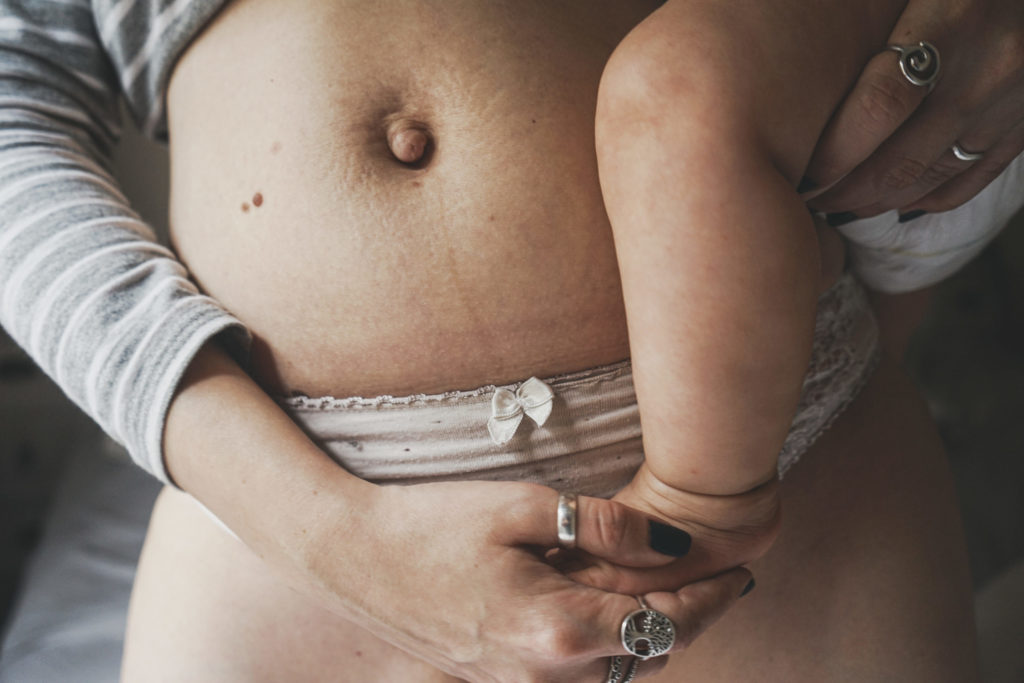
Real image of a woman and her baby at postpartum recovery
Tips for Caring for Yourself Postpartum
If you’ve recently become a parent, caring for yourself postpartum can be a struggle. From physical recovery to emotional well-being, it’s important to take time out for yourself and practice self-care. In this article, you’ll find tips for taking care of yourself postpartum to help you transition into parenthood and beyond. Keep reading to learn more.
Invest in a quality nursing bra.

A nursing bralette is an essential item of clothing for new mothers. It provides comfort, support, and style while breastfeeding. The design of the nursing bra allows easy access to the breast so that moms can feed their babies without having to remove their clothes or take off a full bra. Nursing bralettes are available in a variety of styles and sizes, allowing each mother to find one that fits her body comfortably while still providing ample coverage. Nursing bras also come with additional features such as adjustable straps and extra padding for added comfort during feeding sessions. Care should be taken when selecting a nursing bra; it should fit properly around the torso and not be too tight or restrictive on any part of the body. Additionally, selecting a breathable fabric will help keep skin from becoming too sweaty or uncomfortable during extended use throughout the day.
Seek out a therapist.
After the whirlwind of pregnancy and childbirth, you may be feeling overwhelmed and exhausted. It’s common to experience a range of emotions during this time, from joy and excitement to fear and anxiety. It’s important to take care of yourself, both mentally and physically, during this transition. The best therapist in Charlotte or your city can help you develop healthy strategies for caring for yourself during this time of transition. A postpartum therapist is trained to support women who are navigating the challenges of postpartum life. They are experienced in helping women with the common issues that can arise during this period, such as difficulty adjusting to new motherhood, feelings of sadness or anxiety, postpartum depression, and relationship issues. Postpartum therapists can provide guidance and support to help you adjust to your new role and make sense of your emotions.
Eat well and hydrate regularly.

Eating nutritious meals can help replenish nutrients that were lost during pregnancy, labor, and delivery. High-quality proteins should be included in every meal or snack, as they can help maintain muscle mass and heal tissue damage from the birthing process. Eating a balanced diet with plenty of fresh fruits and vegetables will also ensure you get enough vitamins, minerals, fiber, healthy fats, carbohydrates, and other important nutrients for optimal health. Additionally, it is important to stay hydrated by drinking plenty of fluids throughout the day; this helps keep cells functioning optimally while aiding digestion which can often become sluggish during times of stress or exhaustion. Staying properly hydrated helps reduce headaches associated with dehydration while providing energy when sleep is fleeting due to caring for a new baby around the clock.
Allow time for rest.
When your bundle of joy finally arrives, taking care of yourself often takes a backseat. It’s easy to get caught up in the excitement of caring for your newborn and forget that you also need to take care of yourself. Postpartum care is essential for new moms, and it’s important to make time to rest. The first few weeks after delivery can be exhausting for new moms. You may experience sleep deprivation due to frequent feedings, and you may be feeling overwhelmed and anxious about your new role as a mother. Taking the time to rest and care for yourself postpartum is essential for new moms. It can help you feel energized, relaxed, and better able to handle the challenges of motherhood. Make sure to make time for self-care and don’t be afraid to ask for help when needed.
Overall, postpartum care is an essential part of the healing process after childbirth and it is important to prioritize time for self-care. Developing healthy lifestyle habits such as eating nutritious meals, getting enough sleep and exercise, and seeking professional help can help new parents to cope with the physical and emotional changes associated with having a baby. Taking care of oneself is key for a successful transition into parenthood.